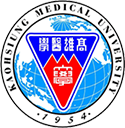|
Abstract: This course aims to guide students to learn via providing services, and is conducted based on a curriculum design consisting of three phases: "preparation", "service", and "reflection and celebration", coupled with the theories and methods related to service learning, and the spirit of providing care. Students will be grouped with the instructors and authorities of the units where they will lead the students and work with them to fulfill service requirements. Students are expected to think critically and use what they have learned in class to reflect on themselves and rediscover their self-value. By sharing their ideas during the service process, they can clarify how they grow intellectually and morally. |
|
Goal: 1. Understand and experience social care, and cultivate related humanistic literacy; 2. Be inspired to have passion for service; 3. Understand, and further bear in mind, the attitude of treating people they offer service to with good manners and respect; 4. Develop the habit of autonomous learning and maintain a sense of responsibility; 5. Be active in finding appropriate approaches and attitudes in problem solving; 6. Reflect on the experiences acquired in life, interactions with others, and services; 7. Cultivate a teamwork spirit and act accordingly; 8. Experience the cultural values underlying this educational institute; 9. Possess the ability of writing up plans; 10. Participate in university-community interactions to facilitate community development; 11. Give feedback on the service work. |
|
Method: The teaching will be conducted in three parts: 1. Preparation: The focus is on preparing for service work and writing up service learning plans. (1) Introducing the units where students will provide services, and visiting such units: learning more about the units and choose one in which to provide service; (2) Panel discussion and writing up service learning plans: With an understanding of the units for service learning, students will discuss how the service can best be provided and how the service work can be divided in order for them to be well-prepared for the service work. 2. Service: The focus is on fulfilling the goals of service learning. (1) Panel-based service: Students are expected to work with, support, and care for one another; (2) Learning in doing: Trying to solve problems while providing service, and sharing ideas with instructors and group members; 3. Reflection and celebration: The focus is on reflecting on oneself and sharing what has been learned during the service. (1) Reflection: Group instructors will guide the students to share what they think about the service work and to write up a report based on their self-reflection. (2) Celebration: At the end of the semester, students will present their reports along with their classmates. |
|
Requirement: This course is divided into three parts, and students have to fulfill the following requirements: 1. Preparation: (1) Enter personal data: Students have to create an account and enter their correct personal information in the e-learning platform during the first week of the semester in order to receive course announcements and relevant messages; (2) Select a unit in which to provide service and join the student grouping: In the second week, students have to prioritize the units where they wish to provide service, and join the student grouping, whereby a leader shall also be elected for each group; (3) Panel discussion and complete the service learning plans: With an understanding of the units in which to provide service, students have to discuss how the service can best be provided and how the service work can be divided in order to be well-prepared for their service work. 2. Service: (1) Units for service learning: Students have to contact the supervisor of each unit to determine their service schedule, and go to the units on time for the service work. In the case of being unable to be present, students have to contact their group leader and the unit supervisor first to determine when to make up for the service hours. (2) Complete the service hours: Each student shall complete at least 16 service hours. Those who do not complete the prescribed number of service hours will be deemed to have failed the course; they will be required retake the course with the result of passing, before graduation. The attendance sheet will be under the charge of the units and students have to sign the sheet upon getting to and leaving the units at each session of service. Unit supervisors shall affix a seal on the sheet as evidence. At the end of semester, the attendance sheet and service learning reports will be submitted to the group instructors. 3. Reflection and celebration: (1) Reflection: Students have to share their ideas on the semester's service learning and write up a report. (2) At the end of the semester, students will present their reports along with their classmates. 4. Academy education passport (Non-KMU Academy of Life students who have transferred credits for their "Introduction to University Studies" course in the fall semester are not required to attend): Students have to participate in activities held by the Academy and meet the requirements prescribed in the passport. |
|
Score: 1. Performance in class (15%): attendance (7%), interaction in class (8%) 2. Service learning plan (15%) 3. Reflection and celebration (15%): The report based on self-reflection (7%), presentation of the report (8%) 4. Service performance (55%): Each student has to complete at least 16 service hours (scores will be given according to completed service hours and students' attitudes in doing service.) Those who do not complete the prescribed number of service hours are deemed to have failed the course. |
